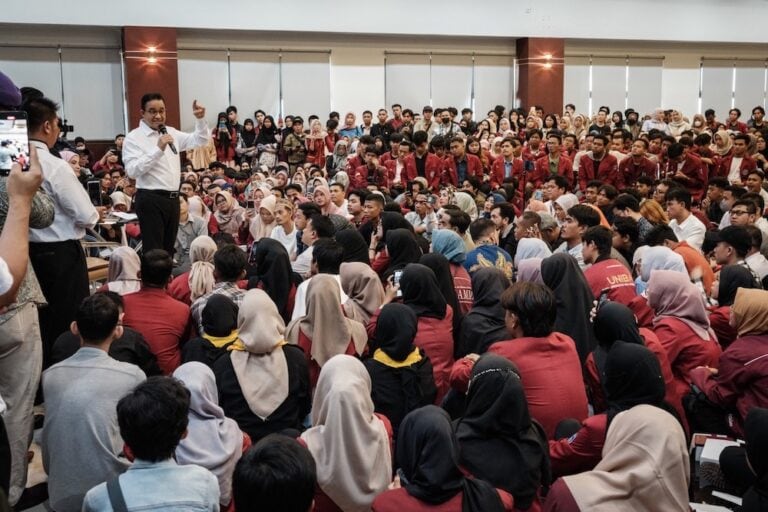(SEAPA/IFEX) – SEAPA welcomes the Supreme Court’s verdict to clear Bambang Harymurti, chief editor of the weekly publication “Tempo Magazine”, of criminal defamation charges. “This landmark decision will set a standard for the future application and interpretation of the laws affecting journalists’ rights and freedom of expression in Indonesia,” said SEAPA in a statement. In […]
(SEAPA/IFEX) – SEAPA welcomes the Supreme Court’s verdict to clear Bambang Harymurti, chief editor of the weekly publication “Tempo Magazine”, of criminal defamation charges. “This landmark decision will set a standard for the future application and interpretation of the laws affecting journalists’ rights and freedom of expression in Indonesia,” said SEAPA in a statement.
In its ruling on 9 February 2006, the Supreme Court overturned the earlier decisions of the High Court of Jakarta and the Regency Court of Central Jakarta which, based on criminal law, had found Bambang guilty and sentenced him to a year in prison for libeling businessman Tomy Winata.
The case stemmed from a story that “Tempo” ran in March 2003 under the headline “Ada Tomy di Tenabang?” (“Is Tomy in Tanah Abang?”). The story suggested that Tomy may have had a hand in a blaze at the Tanah Abang textile market, one of the largest markets in Indonesia, based on the fact that he got a concession to renovate it.
A panel of three justices unanimously agreed to Bambang’s appeal that the Press Law should be used to hear defamation cases against journalists instead of the Criminal Law, according to Justice Djoko Sarwono, the Supreme Court spokesman and a member of the panel of justices.
Djoko said the decision was made in recognition of the important role of the press as a fourth pillar of democracy to keep society informed. “We want to ensure journalists have protection,” Djoko was quoted as saying by the “Jakarta Post” daily, (VS a local daily, “Jakarta Post”) in its 10 February edition.
The court spokesman cautioned, however, that such protection was only afforded to journalists who worked according to journalistic ethics.
The court verdict was well received by the media community in Indonesia, including the Alliance of Independent Journalists (AJI), as an important milestone in its clamor for the decriminalisation of defamation. They have long argued that the existing press law provides enough redress to damages caused to individuals by journalists’ reports, including the right to reply.
They cautioned however that more strenuous lobbying efforts need to be carried out to convince the judges to apply this Supreme Court decision to other pending defamation cases against journalists.
The Supreme Court is currently hearing judicial reviews involving “Tempo” reporters, Ahmad Taufik and T. Iskandar, the Tempo group’s other publication, “Koran Tempo” daily newspaper, and Tempo founder and journalist Goenawa Mohamad.
Tomy, a powerful businessman, launched at least nine criminal defamation cases against Tempo groups after the Tanah Abang story ran in March 2003.


